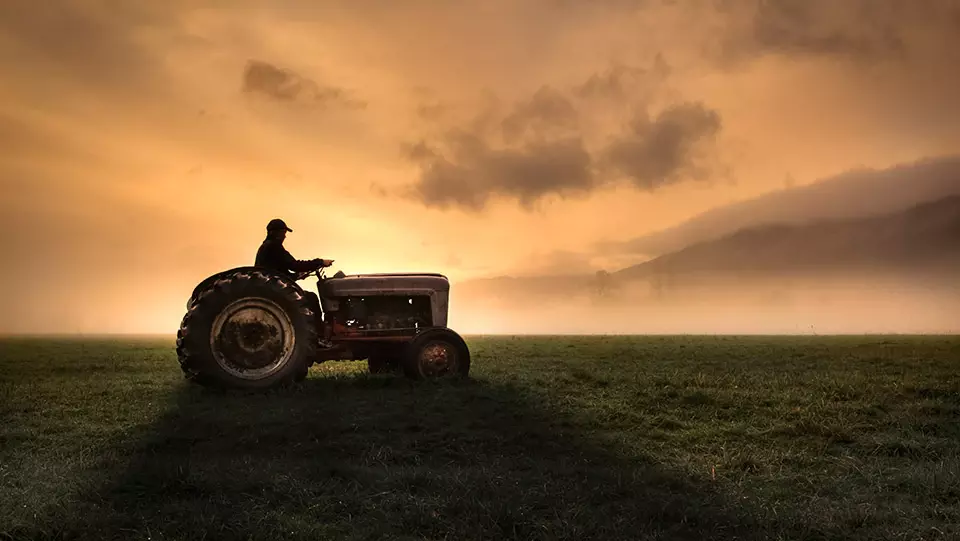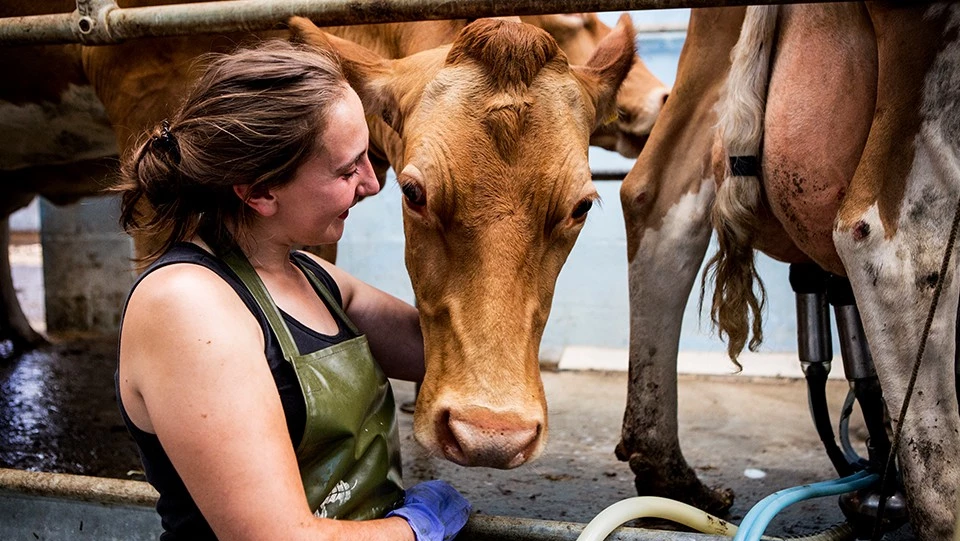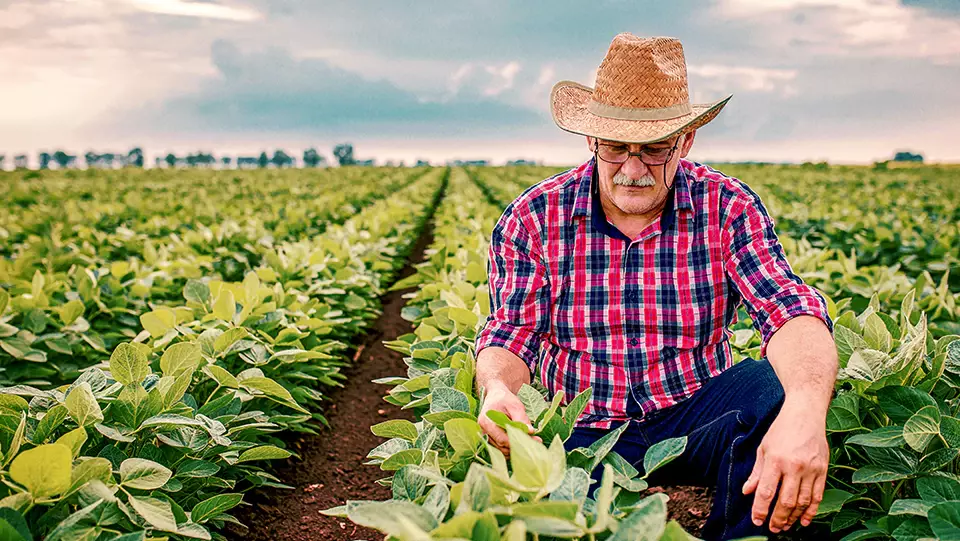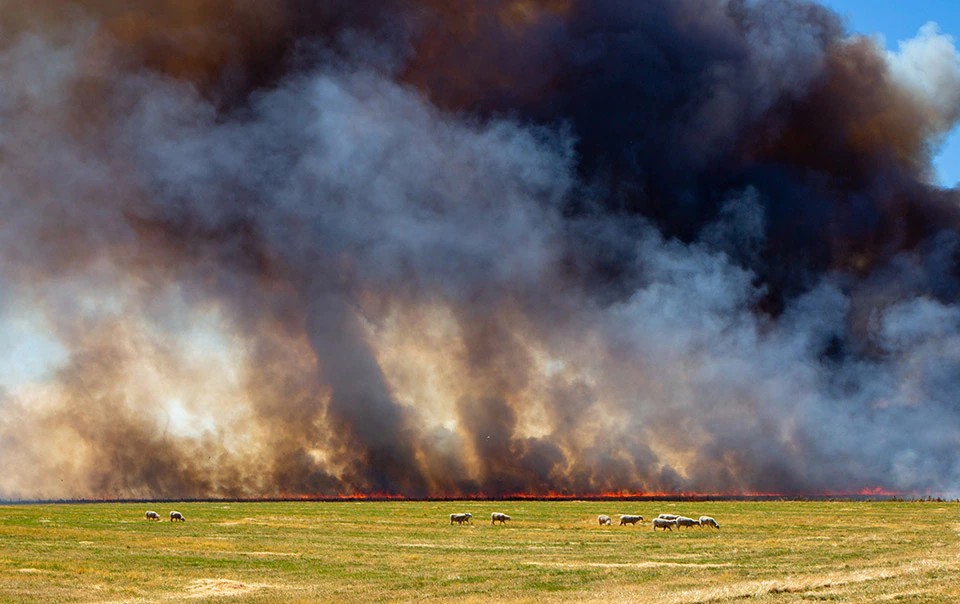Farm and Ranch Insurance vs. Homeowners Insurance: A Quick Guide


On the surface, it may seem like farm insurance and homeowners insurance are similar. Although homeowners coverage and farm and ranch coverage both provide personal property and liability protection, there are key coverage differences. A knowledgeable agent is your best resource to better understand the coverage necessary to protect your property. Here’s what you need to know about the difference between farm and ranch insurance versus homeowners insurance and how to get the conversation started with your agent.
What is farm and ranch insurance?
Farm and ranch insurance is a combined level of protection designed to cover both personal and commercial risks. Generally, farm and ranch insurance provides coverage for your home and its contents; farm personal property like equipment, tools, irrigation equipment, harvested crops and more; farm structures; and liability coverage for farm premises liability and farm product liability. Additional agribusiness coverages are also available.
Are farmers eligible for homeowners insurance?
Farmers are eligible for homeowners insurance just like anybody else. Homeowners insurance generally protects your home and the possessions in your home against loss or damage, and it provides coverage for your potential liability to someone who gets injured at your home. But because farms and ranches usually include homes and other buildings, equipment and vehicles, and farm or ranch operations, additional coverage beyond a homeowners policy is necessary. Farm and ranch insurance is designed to provide that wider coverage.
What is excluded from farm coverage?
Homeowners coverage is designed to protect the home from specific perils. It does not include protection for farm or ranch property or operations, nor does it protect the typical property on a hobby farm. For example, a hobby farm may include equipment or an outbuilding like a barn or greenhouse, a farm stand, and shelters for a few animals. None of that would be covered under a typical homeowners policy.
When thinking about insurance protection, it is important to review your policy to ensure all your property is covered. Farm and ranch coverage can be customized to suit your specific needs.
What is homeowners insurance?
Homeowners insurance generally protects your home, as well as the possessions in your home, against loss or damage. It also provides coverage for your potential liability to someone who gets injured at your property. However, it does not include protection for farm business and farm activities.
What about rural home insurance?
If your country or rural home includes property, buildings or structures other than your home, you need farm and ranch coverage. If you operate a small enterprise at your country home such as raising livestock, horse boarding, vineyard cultivation, hay cutting or other farm activities, you need farm and ranch coverage. More than homeowners insurance, this protection offers specialized coverage to help you control your exposure to loss and protect your property.
Farm insurance vs. homeowners insurance
Here’s an at-a-glance comparison between farm and ranch insurance and homeowners insurance, which demonstrates where the two overlap, as well as the specifics of what each type of insurance coverage is typically available with each.
Homeowners insurance
- Home and possessions
- Personal liability coverage
- Outbuildings and structures (limited to size and use)
- Building materials and supplies (possibly)
Farm and ranch insurance
- Home and possessions
- Personal liability coverage
- Outbuildings and structures
- Building materials and supplies
- Farm machinery and equipment
- Livestock
- Farm products
- Farm liability coverage
- Farm product liability coverage
- Fences and corrals
- Equine liability
- Vineyard coverage
- Chemical drift liability
Do I need homeowners insurance for land?
If you farm on land that is not adjacent to your home or farm and ranch operation, Travelers farm and ranch insurance can include that for purposes of liability coverage. If you own vacant land, contact your local Travelers agent to learn about the type of insurance that can cover potential liability to someone that is injured on that property.



